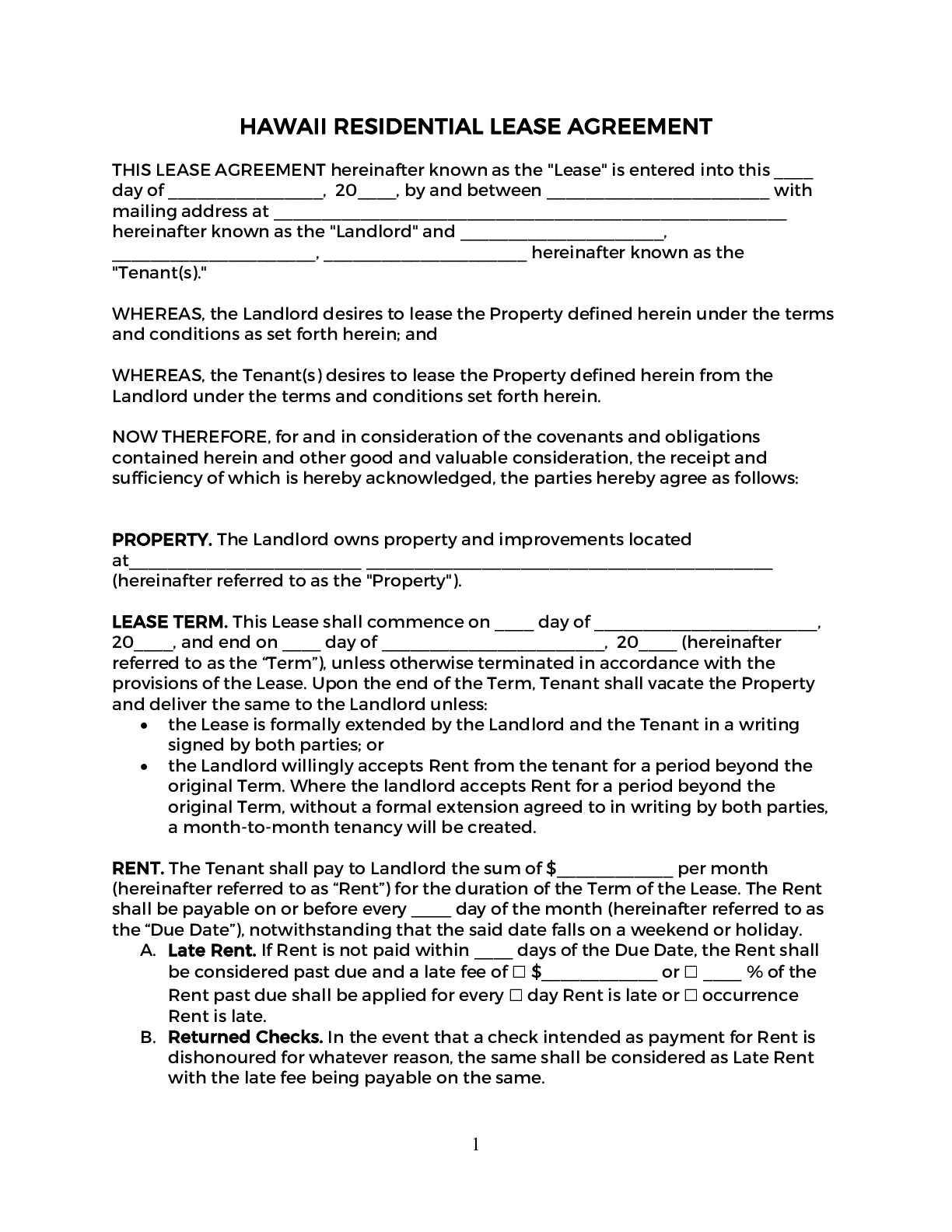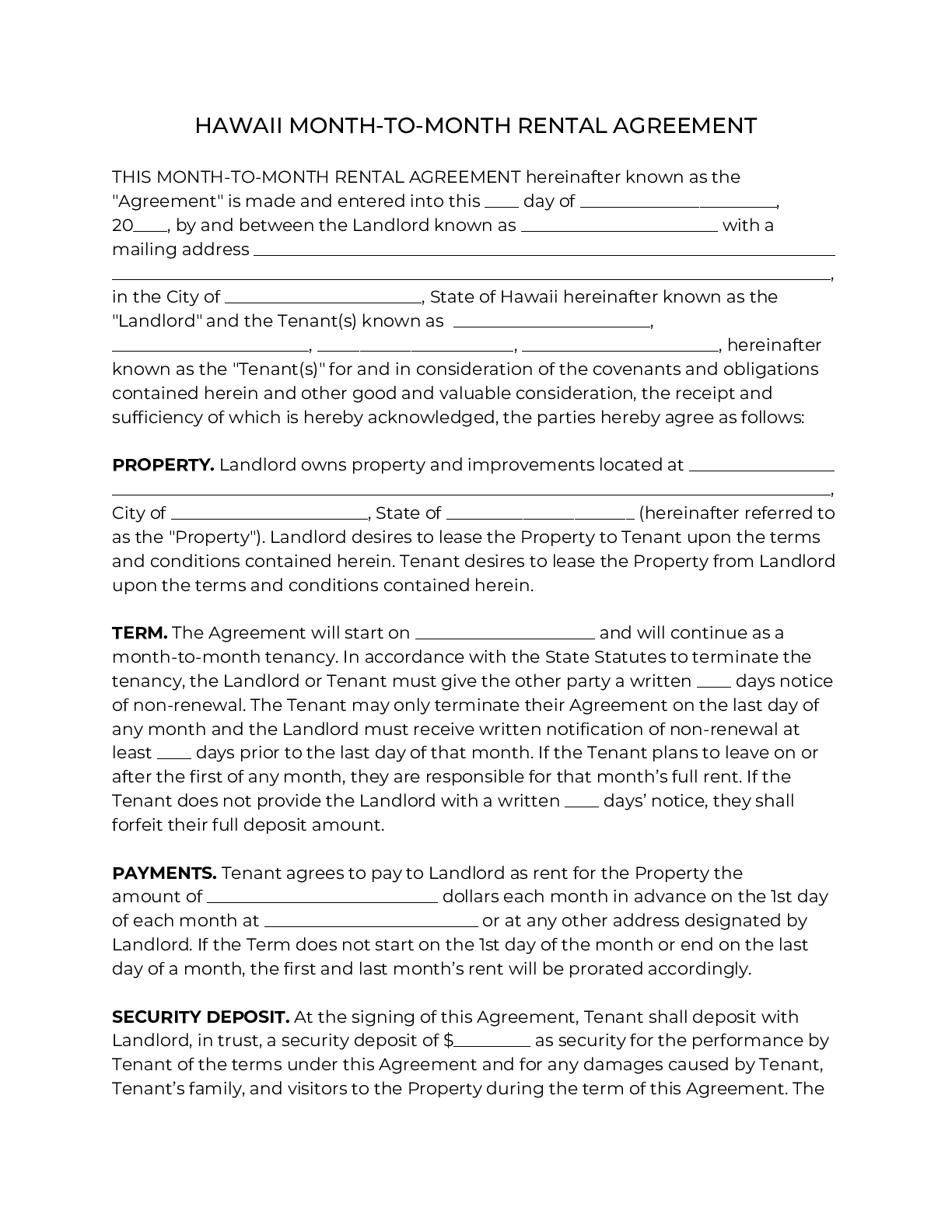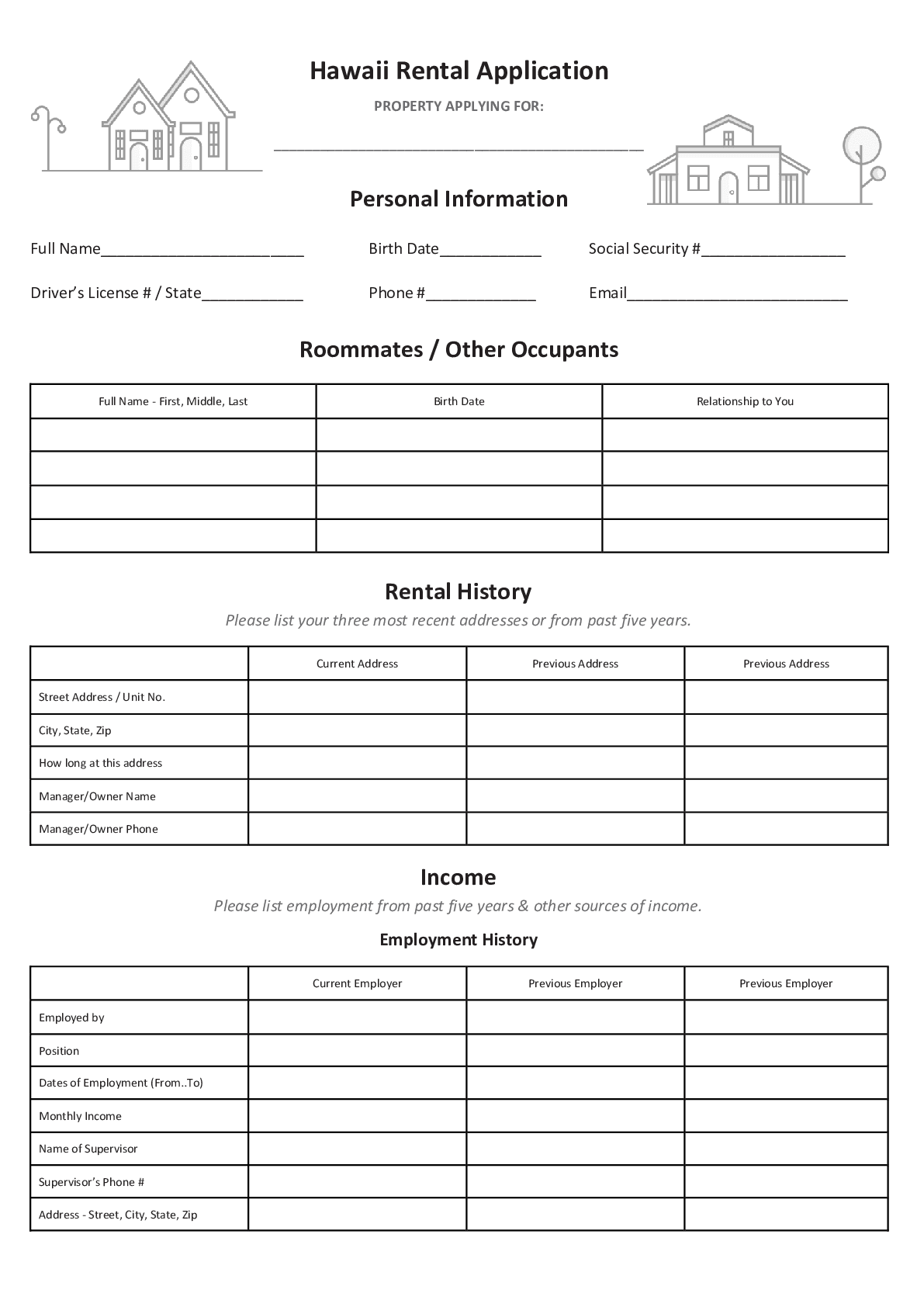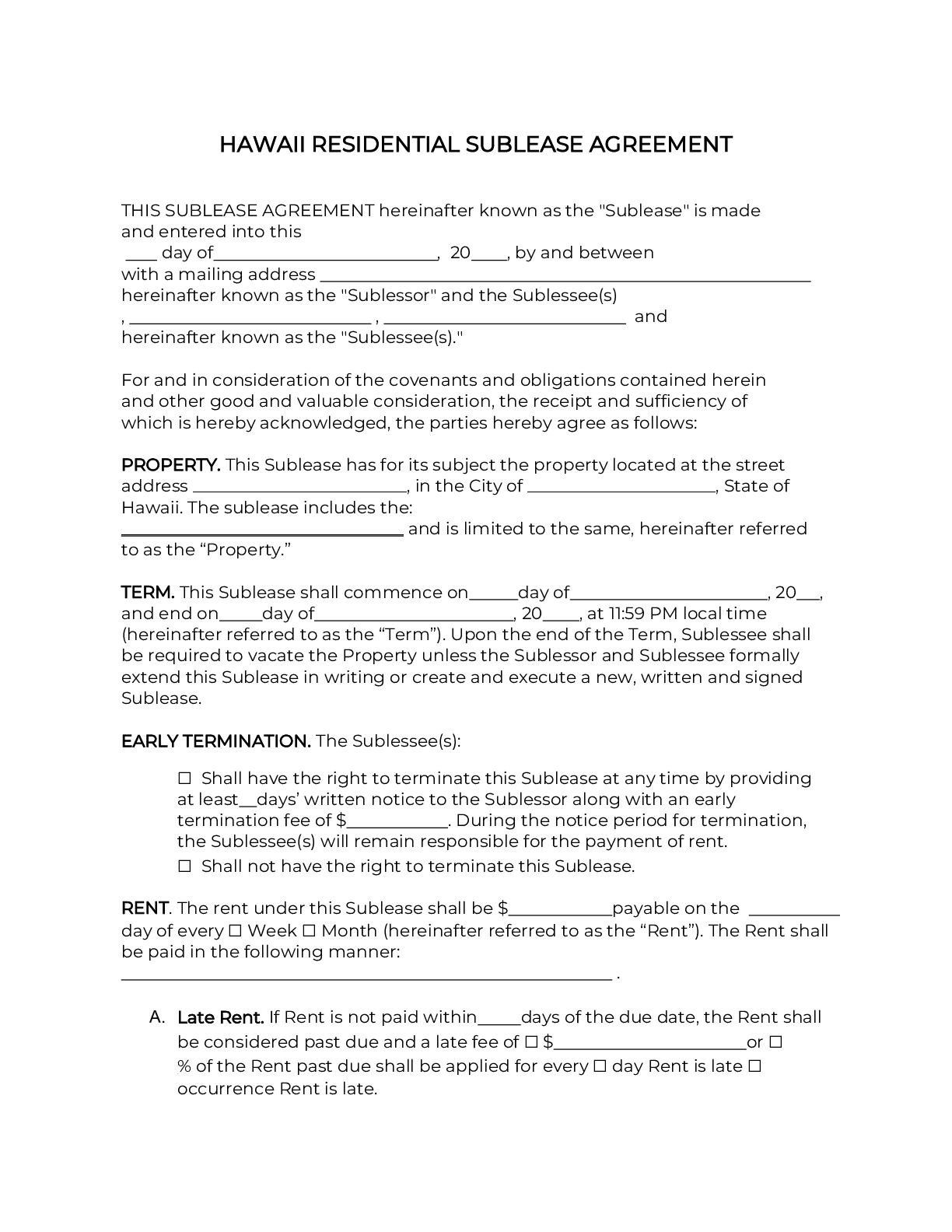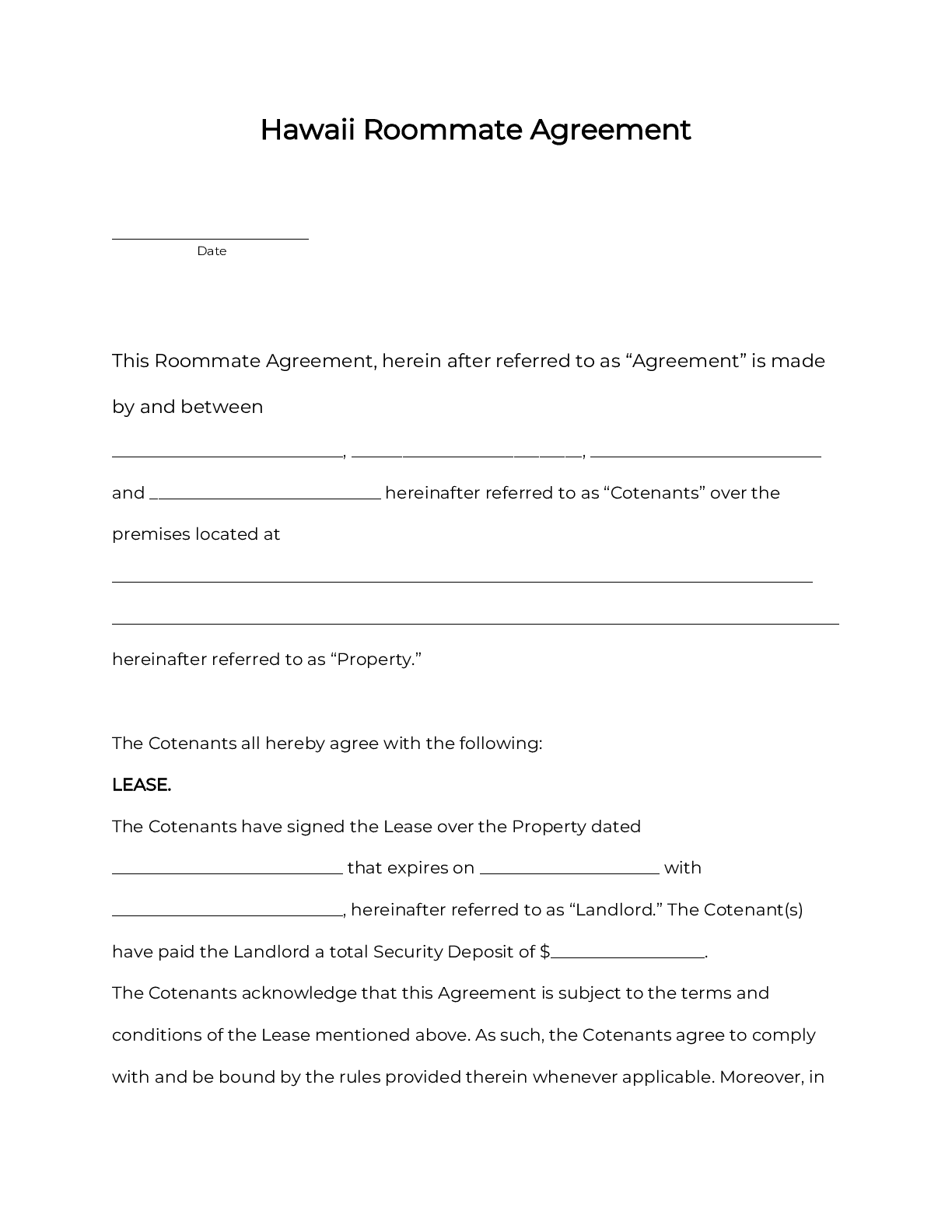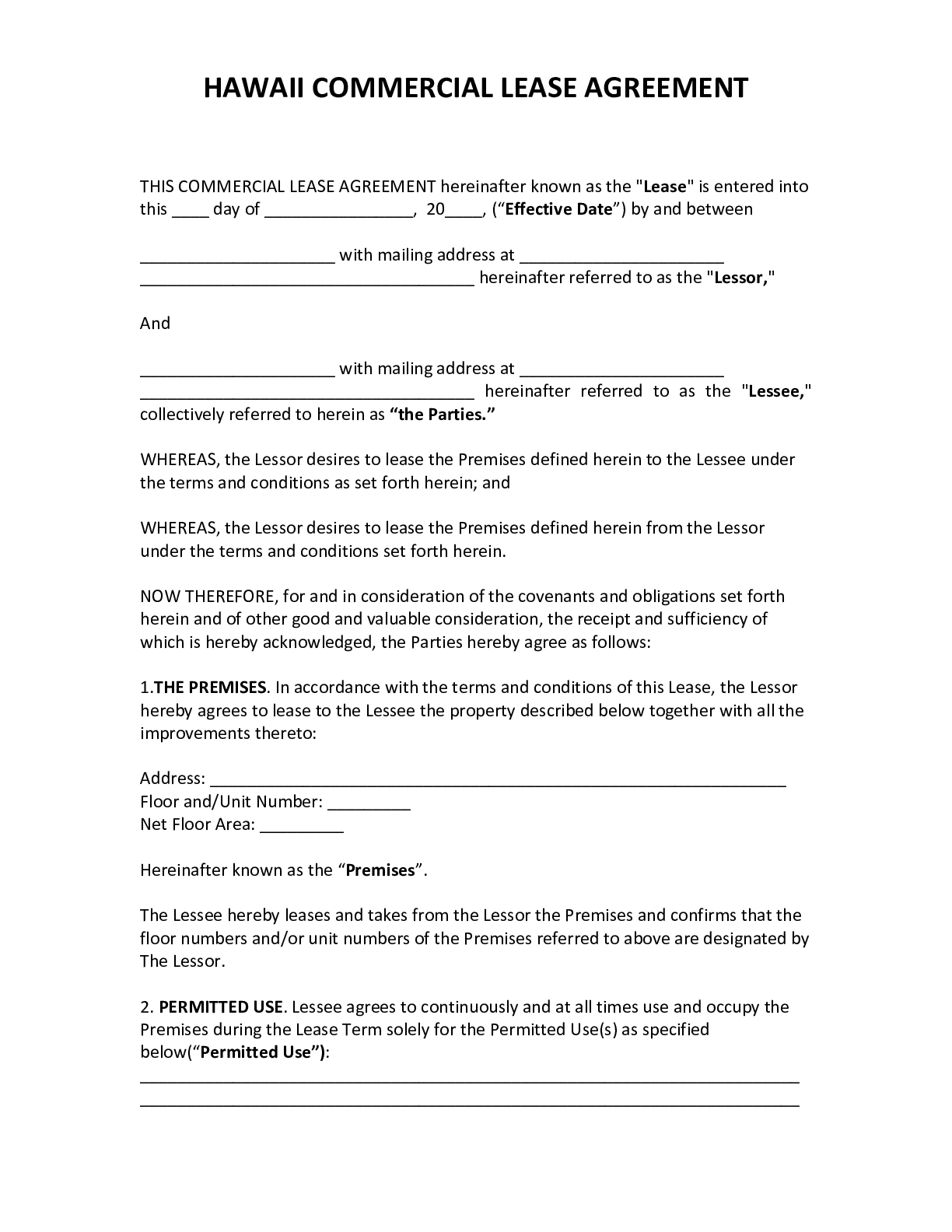A Hawaii rental agreement is a legal contract between a landlord overseeing a rental property and a tenant using the property. Hawaii landlord-tenant law governs and regulates these agreements.
Hawaii Rental Agreement Types
Common Residential Rental Agreements in Hawaii
- Hawaii Association of REALTORS® Rental Agreement – This template for use by members of the National Association of REALTORS®. It contains extensive terms, conditions, and procedures, particularly for maintenance rules and regulations.
Hawaii Required Residential Lease Disclosures
- Landlord’s Name and Address (required for all leases) – Hawaii landlords must give the tenant their name and address, or that of their authorized agent. This allows required communication (for example, about repairs) to happen in a smooth way.
- Move-In Checklist (required for some leases) – Hawaii landlords can’t collect a security deposit unless they provide a move-in checklist. This takes inventory of existing damage on the rental property. The tenant must agree with the landlord on existing damages, to ensure accurate deductions upon move-out.
- Lead-Based Paint Disclosure (required for some leases) – Landlords must provide an EPA-approved disclosure and informational pamphlet to tenants renting any property built before 1978.
To learn more about required disclosures in Hawaii, click here.
Hawaii Landlord Tenant Laws
- Warranty of Habitability – Hawaii landlords can only rent out habitable property. This means providing certain basic health and safety features like heat, plumbing, and electricity. Landlords must repair any issues within 3-12 days after proper notice, depending on the issue. Failure to repair lets a tenant sue the landlord, repair and deduct from the rent, or terminate the lease. Tenants aren’t allowed to withhold rent.
- Evictions – Hawaii landlords may evict for rent nonpayment, lease violations, or illegal acts, among other things. Before filing eviction, landlords must serve tenants with prior notice to pay, comply or quit, depending on the eviction type. This means most evictions in Hawaii take between one to four months.
- Security Deposits – Hawaii caps the value of a security deposit at one month’s rent. A landlord must return any unused portion of a tenant’s security deposit within 14 days of the lease ending.
- Lease Termination – Hawaii allows tenants to end a month-to-month lease with 28 days of advance notice. Terminating a fixed-term lease early requires (in most cases) active military duty, landlord harassment, uninhabitable property, or domestic abuse.
- Rent Increases and Fees – Hawaii doesn’t regulate the frequency or reason for a rent increase. Notice before a rent increase is 15 or 45 days depending on the specifics of the tenancy. The state caps late fees at 8% of the overdue amount. Returned check fees have a $30 limit.
- Landlord Entry – Hawaii landlords may enter rental property for reasonable business purposes like maintenance, inspections, and property showings. Before entering, they must provide at least at least two days of advance notice, except in emergencies.
- Settling Legal Disputes – Hawaii lets small claims courts hear landlord-tenant disputes, as long as the amount in controversy is under $5,000. Small claims courts don’t hear eviction cases. The statute of limitations is six years for most issues.
To learn more about landlord tenant laws in Hawaii, click here.
Sources
- 1 Haw. Rev. Stat. § 490:3-506.5
-
The payee or a holder in due course of any check, draft, or order for the payment of money that has been dishonored for lack of funds or credit to pay the check, draft, or order or because the maker has no account with the drawee shall be allowed to assess the maker a service charge of not more than $30.
Source Link




